The document discusses different approaches to teaching spelling to middle school students. It explores whether spelling is best learned implicitly through writing or through explicit instruction. Several key terms related to spelling development are defined. Effective strategies discussed include word study, word sorts, using technology, and assessing students' spelling skills and development. The debate around whether spelling is caught or taught is also summarized.
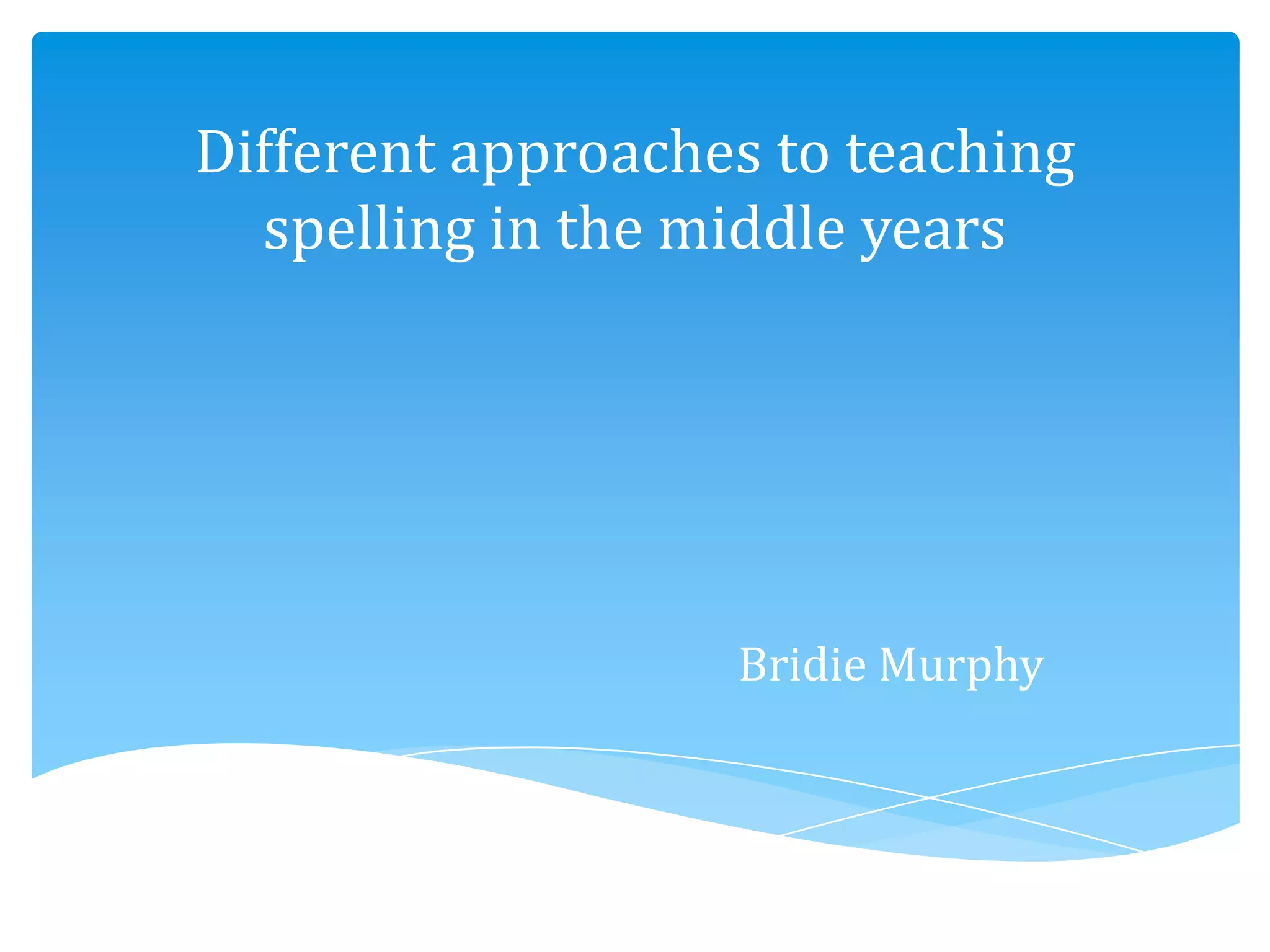
![Teaching spelling and the different approaches used to
correctly teach spelling, specifically in the middle years is
a topic that has multiple points of views and opinions
from many; teachers, parents and some students.
Westwood (2005) states that the focus of teaching
spelling centres around the question of whether spelling
is best learned instinctively and incidentally by engaging
in writing or whether time and effort should be devoted
for explicit teaching of spelling (p. 1).
Westwood, P. (2005). Spelling: Approaches to teaching and assessment [online]. Second Ed.
Retrieved from
http://0search.informit.com.au.alpha2.latrobe.edu.au/fullText;dn=756740268456780;res=IELHS
S](https://image.slidesharecdn.com/differentapproachestospelling-130905063046-/85/Different-approaches-to-spelling-2-320.jpg)
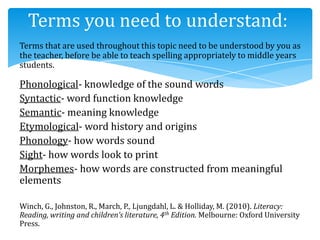
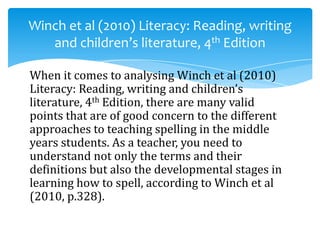
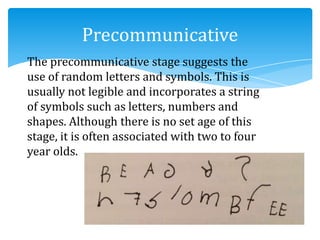
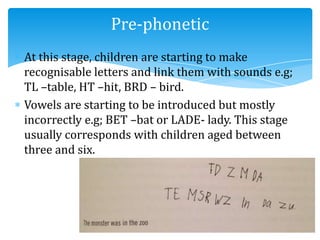
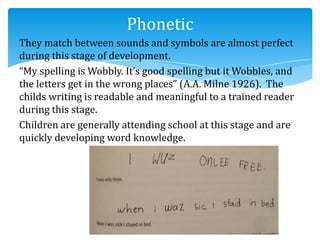
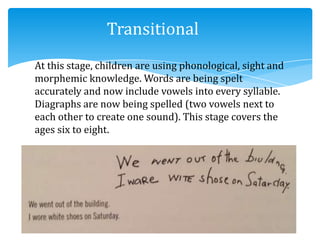
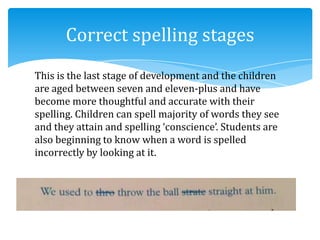
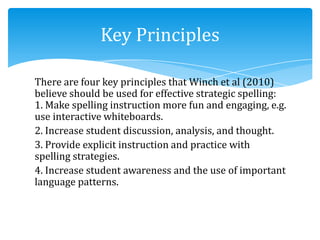
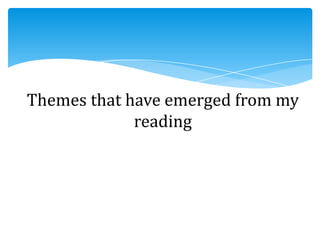
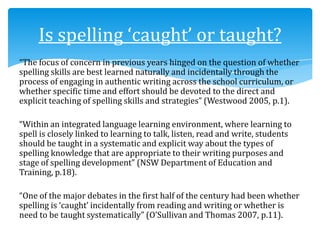
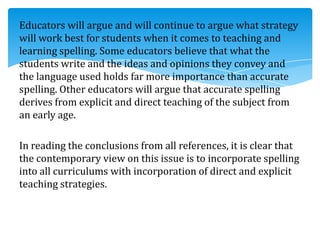
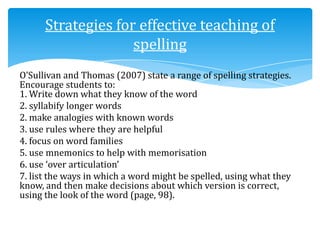
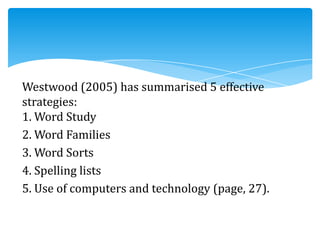
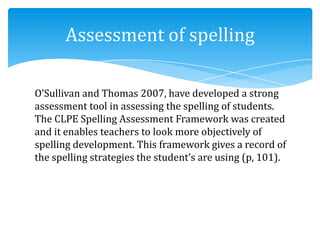
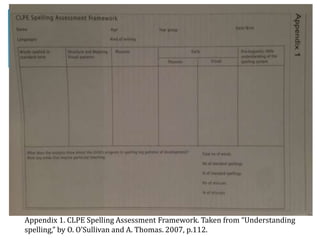
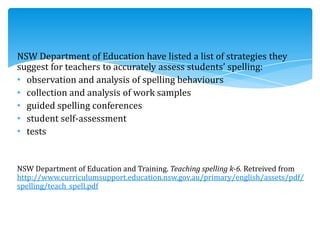
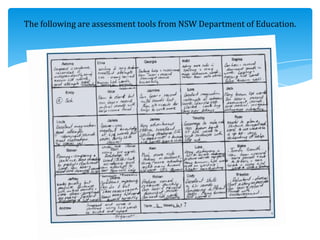
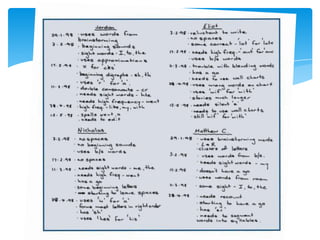
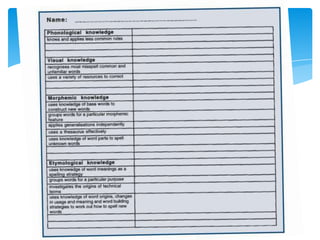
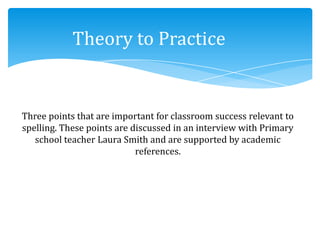
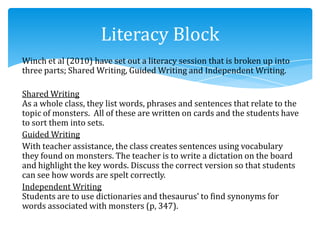
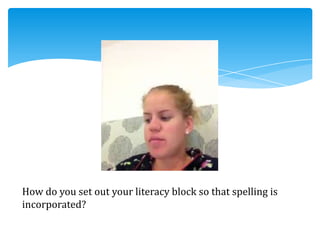
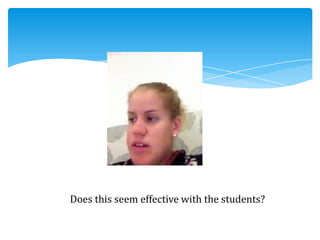
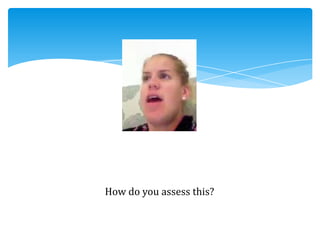
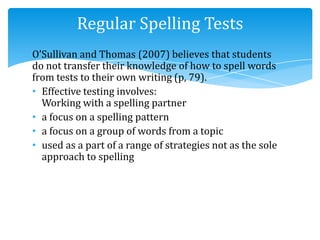
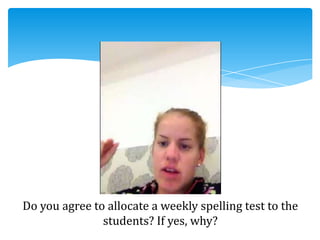
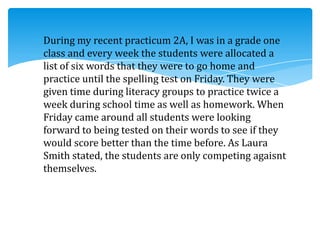
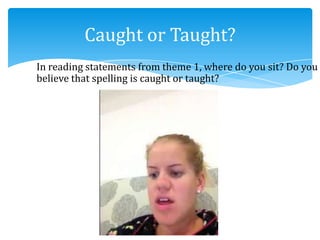
![References
Westwood, P. (2005). Spelling: Approaches to teaching and assessment
[online]. Second Ed. Retrieved from
http://0search.informit.com.au.alpha2.latrobe.edu.au/fullText;dn=7567
40268456780;res=IELHSS
Winch, G., Johnston, R., March, P., Ljungdahl, L. & Holliday, M. (2010).
Literacy: Reading, writing and children’s literature, 4th Edition.
Melbourne: Oxford University Press.
NSW Department of Education and Training. Teaching spelling k-6.
Retreived from
http://www.curriculumsupport.education.nsw.gov.au/primary/english
/assets/pdf/spelling/teach_spell.pdf
O’Sullivan, O & Thomas, A. (2007). Understanding spelling. Oxon:
Routledge.](https://image.slidesharecdn.com/differentapproachestospelling-130905063046-/85/Different-approaches-to-spelling-31-320.jpg)